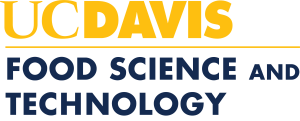A. Specific Learning Outcomes
Core competencies identified by IFT and matched with learning outcomes (bullets) associated with FST 109 course objectives. Bloom’s Taxonomy levels are given in parenthesis.
Applied Food Science
- Be able to apply and incorporate the principles of Food Science in practical, real-world situations and problems
- integrate information about key food categories, functional ingredients, processing techniques, and packaging to develop product prototypes (VI evaluation)
- integrate information about project management, flow diagram for production of the prototype, HACCP, QA/QC, food safety, specifications of raw materials, and labeling (VI evaluation)
- develop supporting documentation for the prototype food product (V synthesis)
- Be able to apply the principles of Food Science to control and assure the quality of food products
- describe the variability in processes and materials and the effect on product quality (III application)
- develop and test a food product concept and prototype as part of a team (V synthesis)
- Be aware of current topics of importance to the food industry
- evaluate current topics and the relationship to regulatory issues (e.g., recent food borne illness outbreaks, food adulteration) (VI evaluation)
- Demonstrate the use of oral and written communication skills
- prepare presentations, reports, assignments according to requested format; develop an understanding of team vs. individual assignments (III application)
- Commit to the highest standards of professional integrity and ethical values
- document research in a professional style notebook (III application)
- critique literature in order to effectively conduct research (VI evaluation)
- Work and/or interact with individuals from diverse cultures
- work within teams to develop relationships and appreciate diversity (i.e, different ways to approach problems)
- Work effectively with others
- participate in team activities that include multiple roles for each individual: leader, follower, organizer, planner, participant (V synthesis)
